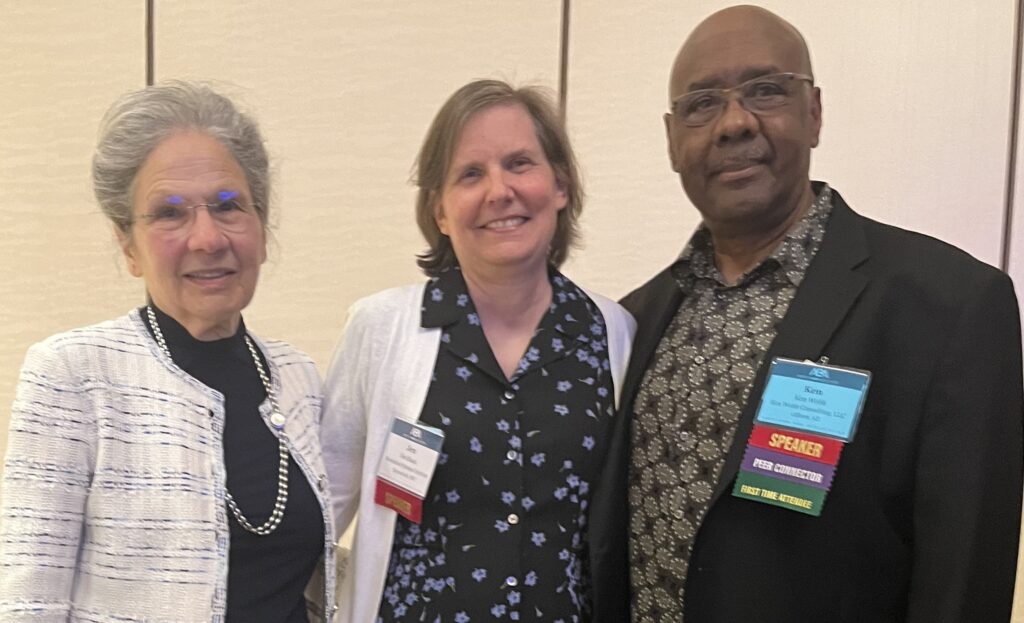RSI recently completed our evaluation of an equity audit implementation project by the Center for Conflict Resolution (CCR) in Chicago. CCR staff, board members and volunteers worked with a consulting partner to uncover barriers preventing their volunteer mediator roster from fully reflecting the diversity of the communities CCR serves. After identifying barriers, they made major changes to how CCR recruits and screens applicants to its Mediator Mentorship Program (MMP), which onboards mediators to volunteer at CCR. RSI evaluated the efficacy of CCR’s implementation and examined initial outcomes of the revamped process.

We are excited to share that our evaluation report, Fostering Equity in a Volunteer Mediator Roster: An Evaluation of the Center for Conflict Resolution’s Equity Audit Implementation, is now available on RSI’s website. The report includes our findings from surveying, interviewing and observing staff, board members and volunteers who participated in the project and facilitated CCR’s new applicant screening and recruiting processes.
In addition to the evaluation, we created a guide for community mediation centers, to help them learn from CCR’s efforts.In A Guide for Enhancing Mediator Roster Equity from Concept to Implementation, we document the strategies CCR staff, board members and volunteers took to address barriers to equity in the MMP. We describe which approaches were most effective and which were less effective, and we provide recommendations for staff at other community mediation centers (CMCs).
A Guide for Community Mediation Centers
The guide contains step-by-step instructions to help mediation centers adapt CCR’s approaches to addressing barriers that could keep people from a variety of backgrounds from applying and participating fully as CMC mediators. It advises CMCs on how to build alignment among staff and volunteers on a set of equity-related goals; retool application materials to collect more accurate and relevant information about applicants to their programs; and create more effective screening processes to assess applicants’ mediation-related skill sets.
CCR staff found that their experience with the equity audit and its implementation challenged previously held assumptions about how to best enhance diversity. For example, did you know that using predominantly written application materials might hamper efforts at diversifying mediator rosters? Or that activity-based group interviews might provide more relevant and useful information about applicants’ capacities to be successful mediators than traditional one-on-one interviews?
In the guide, we explain what CCR staff learned about these issues and describe the creative solutions they devised to address them. One major solution is the Matching Event, CCR’s innovative new format for screening applicants to the MMP.
During a Matching Event, applicants participate in a series of stations involving activities designed to assess specific skills, such as being empathetic and being comfortable with conflict. Stations are facilitated by two CCR “Station Runners” (staff or volunteer mentors), with activities that range from describing the emotions of characters in a movie clip to role playing as parties in conflict. Station Runners use CCR’s newly crafted Matching Event Scorecard to rate the extent to which applicants meet these criteria.
CCR generously permitted RSI to include its Matching Event materials in the guide, so that others can understand how they work in greater detail. We also wrote step-by-step instructions to help CMCs craft their own Matching Events, should that fit their applicant assessment needs.
Takeaways for CMCs
RSI had two overarching aims with the evaluation: The first was to assess the successes and challenges involved with the process of implementing the audit recommendations; the second, to evaluate the effectiveness and results of implementation activities, such as staff training sessions and the Matching Events. While the evaluation’s findings and recommendations are geared toward CCR, they have broader implications for other CMCs interested in doing similar work.
Below is a set of key takeaways for CMCs interested in making the role of community mediator accessible to more of the people with the skills to participate. These takeaways are based on what we learned from conducting the evaluation as well as working with CCR staff, board members and volunteers to create the guide.
A successful audit and implementation project requires collaboration, time and consistent communication. CCR staff, board members and volunteers needed plenty of time to review and reflect on the findings of the audit before they could take action. Collaboration helped to make the process more effective; by bringing different stakeholders together during workshops and meetings, CCR was able to build buy-in and ensure different aspects of the program were addressed. Staff and volunteers also benefited most when they were updated on the project’s progress.
Meaningful change requires an open mind and flexibility. CCR leadership gave staff and volunteers wide latitude to make changes to program processes. As a result, staff and volunteers felt empowered to address barriers creatively and maintained investment in the project. Many of the barriers were long standing mindsets and processes; permission to make major changes was critical to the project’s success.
Making processes more flexible does not reduce program rigor. One of the most noteworthy learning lessons for CCR was that a one-size-fits-all approach for participation in the MMP is not a prerequisite to maintaining quality program standards. By introducing flexibility to MMP processes and expanding outreach, CCR was able to create opportunities for volunteer mediators from diverse backgrounds to contribute to the organization while keeping rigorous requirements in place.
Enhancing pathways to program participation is an ongoing dialogue and process. From the outset, CCR recognized that any changes made to the MMP as a result of this project would need to be revisited as their outcomes became clear. Building broader access to the program is a process; CCR has planned time for staff and volunteers to further reflect and make changes as needed.


